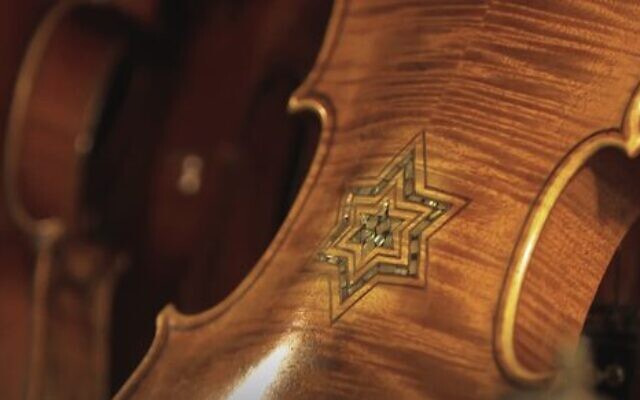The songs and the stories of the saved violins
When the Jewish people were murdered in the Holocaust, often their precious instruments were saved – given to neighbours or strangers on the street to preserve. After the war, a family of luthiers, the Weinsteins, began to restore them so they could be played once again. The AJN explores the Violins of Hope.
When you think about the arts and music culture that was so intrinsic to European Jewish civilisation before the Holocaust, one question often comes to mind.
When the Jewish people were rounded up and taken to the concentration camps, what happened to all the instruments?
Well, there’s a fascinating story behind that.
Part of the tale is Bronisław Huberman’s story. Nicknamed the Oskar Schindler of musicians, Huberman saw the signs early, and chose to leave for Palestine, convincing many prominent Jewish musicians to come with him as they began to lose their places in German orchestras.
Huberman was instrumental – excuse the pun – in the creation of what is now the Israeli Philharmonic Orchestra. After the war, as information began filtering into Palestine about the atrocities that took place, suddenly no one wanted to play their German-made instruments any more.
Wanting to save the beautiful violins, luthier Moshe Weinstein bought them.
The instruments were stashed away in an attic, collecting dust. When Moshe passed away, his son Amnon took over the collection, named the Violins of Hope.
Recently, playwright Ronda Spinak, founder and artistic director of The Braid, the largest independent Jewish theatre in the US, was in Sydney to workshop a production about the Violins of Hope with Moira Blumenthal, to be staged in Sydney next year, called Stories from the Violins of Hope. The Sydney production is adapted from an original script by Lisa Pearl Rosenbaum and Spinak.
As the story goes, when Amnon was questioned by a young German boy about the atrocities of the Holocaust, he began to see why it was so important that the instruments were given a new life. In fact, it was the best revenge.
The production takes audiences through the lives of the violins and their owners, who were murdered in the Holocaust.
“As you hear the stories of the violins, you’re also hearing the incredible family stories woven through, and that’s what makes it different from a concert,” Spinak told The AJN.
“So you learn about the Frenchman whose father was working near the cattle cars, and was given a violin passed through a window – the owner saying ‘Take this, I won’t need it where I’m going.’ [And] the story of the woman in Amsterdam who was given her best friend’s violin and told, ‘Keep this for me for when I come back.'”
Spinak also refers to the incredible story of a young boy – a brilliant violinist – who escaped to the forest and was sent by the partisans to play for the Nazis at a nearby club. Every time he would return to play for the Nazis, he would smuggle and plant explosives, until one day, he blew the club up.
Shortly after it was discovered that Amnon had this beautiful collection, a request came through to play a violin from Germany at a concert in a synagogue in Istanbul. The reception was remarkable, as Spinak explained, people wanted to hear it, see it and touch it.
“Now, orchestras from all over the world are calling to see the instruments and to be able to play the instruments,” she said.
When Amnon receives the violins, usually they are showing their age – they are broken and cracked, and some even contain ashes. Yet they are lovingly restored so they can be played again.
The production has another character, and it is quite an obvious one – live music curated by Dr Noreen Green, founder and conductor of the Los Angeles Jewish Philharmonic Orchestra.
“Music was played in the camps. Music was played in the ghettos, in the forests. But I don’t think people have really comprehended what the music meant to people, and that while they didn’t survive, their instruments did … The instruments hold the spirit or the voices of their owners,” Spinak mused. “When you play them, you’re allowing those souls to be heard. Justice is served when the violins are played.”
Stories from the Violins of Hope will premiere in Sydney in May 2023. For more information, visit moirablumenthalproductions.com.au


comments